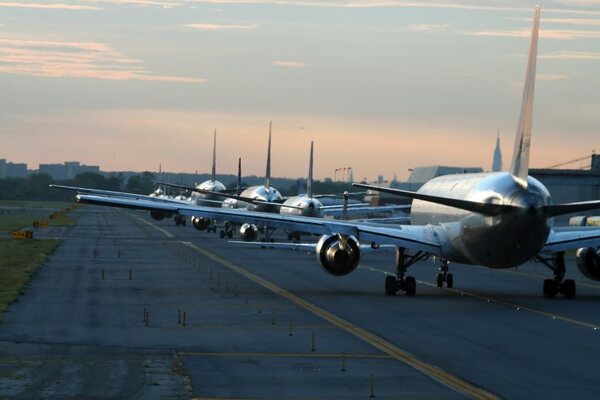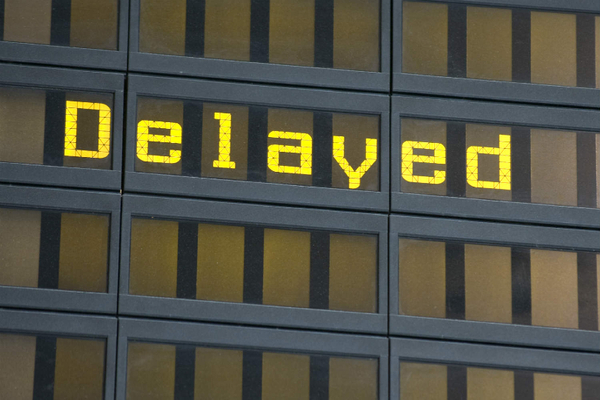US strengthens airline compensation rules pledging to 'take out the haggling'
 Gary Noakes
Gary NoakesNew US airline compensation rules will mean quick refunds for disruption and compensation too for ancillary sales that do not live up to promise – and UK carriers need to take note.
The US Department of Transportation’s (DoT) new regulations, which took effect last month, mean passengers on scheduled domestic or international flights – including those on foreign airlines – are now entitled to automatic cash refunds for cancellations for “significant changes” to flights. Rules also include compensation for ancillaries such as baggage fees.
The rules apply to “a scheduled flight to, from, or within the United States” and to a “foreign air carrier”, meaning UK airlines will be affected. However, refunds are only payable if passengers do not accept alternative transportation or travel credits, which will rule out UK travellers.
The DoT said the new system dispensed with a situation where airlines “were permitted to set their own standards for what kind of flight changes warranted a refund”.
“For the first time, the rule defines ‘significant change’," said the DoT.
"Significant changes to a flight include departure or arrival times that are more than three hours domestically and six hours internationally, departures or arrivals from a different airport, increases in the number of connections, instances where passengers are downgraded to a lower class of service or connections at different airports, or flights on different planes that are less accessible or accommodating to a person with a disability.”
Alan Bowen, legal advisor to the Association of Atol Companies, said: “If you accept the delayed flight or an alternative flight for the one cancelled, you do not get a refund at all,” adding the US system “was never intended to give away free flights or compensation as is payable under EU261”.
The US system differs markedly from EU261, which only focuses on delays and cancellations and where the maximum compensation payable is £520, depending on length of the journey.
However, there are benefits to the US scheme absent from the EU’s. The DoT has also ruled passengers will be entitled to a refund of their checked bag fee if it is not delivered within 12 hours of their domestic flight arriving at the gate, or 15-30 hours on an international flight, depending on length.
In addition, passengers will be entitled to refunds for ancillaries like WiFi, seat selection or in-flight entertainment if an airline fails to provide them.
’Taking out the haggling’
US transportation secretary Pete Buttigieg told CBS News airlines “have not exactly embraced our tougher stance”. “We are going to take the haggling out," he vowed.
"We are going to take the process out and make it automatic. We have heard far too many stories of people who have to jump through hoops to get their refund. I think it’s going to change airlines’ behaviour.”
The US system also means refunds will be automatic and within seven business days for credit card purchases, unlike EU261, where consumers must file a complaint and often face considerable barriers from airlines.
In addition, the US has taken a stance on "drip pricing", whereby airlines bump up the initial ticket price by additions like baggage fees. The DoT said airlines and agents must tell consumers “up front” what fees they charge for a first or second checked bag, a carry-on bag, and for cancelling or changing a reservation.
It also proposes a ban on charging families to sit together and guarantee parents can sit with their children for no extra charge, with four carriers already compliant.
The US system will be policed by the DoT, which has far greater enforcement powers than the UK’s CAA. The CAA can tell airlines to pay up under EU261, but individuals must go to court if they don’t.
The CAA said: “We act where we have cause to believe that an airline may be breaching its UK261 obligations in a way that harms or has harmed the collective interests of consumers."
It said “informal dialogue” was the preferred approach. “More formal enforcement options include seeking undertakings and applying for an enforcement order from the High Court.”
The CAA said an enforcement order was “a last resort given the significant time and resources that this takes”, adding its powers stemmed from the Enterprise Act 2002. "Changes to these powers would have to go through parliament," it added.
Sign up for weekday travel news and analysis straight to your inbox

Gary Noakes
Supplier Directory
Find contacts for 260+ travel suppliers. Type name, company or destination.















